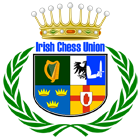First, please be sure to have read the ICU Child Protection Policy
Starting Out
So your child has come accross a chess set, or seen a game being played by others, or "they do it at school" or you want to introduce them to the game; however you or your child initially comes to chess, those early moments can lead to a lifelong and rewarding experience.
To volunteer to write/improve this article, please contact [email protected]
Learning Chess
To volunteer to write/improve this article, please contact [email protected]
Fun junior tournaments
Typically 6 games, each of less than 30 minutes, in an afternoon. The swiss pairing system usually used ensures that all players get 6 games irrespective of their results in previous rounds. There are many of these type of events around the country throughout the season. Some can be found on the icu calendar but many more are promoted locally.
To volunteer to write/improve this article, please contact [email protected]
The junior grading system
Status: DISCUSSION DOCUMENT ONLY - the following is ALL BRAINSTORMING for the moment. To volunteer to write/improve this article, please contact [email protected]
The ICU [are exploring ideas to] run a novices grading system. Just has martial arts have white, red, brown and black belts to mark an individuals expertise and time served, Irish Junior Chess [if implemented] has [ideas for] a chess Grading system based on the chess pieces.
[For example....]
- Pawn : Basic moves, Notation, 6? tactics ideas, fun games (Q vs Ps, catch the K, etc.)
- Knight : Mates with overwhelming force, castling, en passant,
- Bishop : Onions - 30 ideas (Opening, Middle, Endgame)
- Rook : Specific mates, Specific openings,
- King/Queen : Ready for first Classic ICU-rated tournament
Grading can be awarded by 1 of 3 levels of (adult) grader
- local : any adult with an ICU login (eg ??? parent, teacher, club member ??? )
- regional : any adult recognised by the ICU as a regional grader (eg ICU rating >900, other?)
- national : any adult recognised by the ICU as a national grader (eg Titled player, ICU rating > ???, other?
To volunteer to write/improve this article, please contact [email protected]
Coaching
Coaching is available from the coaches, schools and clubs around the country and this is where all juniors are encouraged to start and establish themselves, first in rapid play and then as classic players with an ICU (classic) rating. Coaching can be either group or individual.
Over the past few years, the ICU has organised a national junior squad coaching program aimed at stronger players from U12-U18 aiming to play in international tournaments, both team and individual.
Selection is usually within Jan/Feb each year with the coaching running within Feb-July.
While a full rating is not required, those with full ratings are considered ahead of those with provisional or no ratings.
Classic chess and ICU ratings
Classic chess refers to games where players have 60mins or more playing time on each of their clocks. This means one game can last well over 2 hours.
Preparing and playing in your first classic tournament
Rated junior tournaments
The ICU Junior Page is the gateway to junior events both domestic and international.
Rated open tournaments and leagues
The ICU home page is the gateway to open domestic and international events that are either ICU and/or FIDE rated. There are also provincial leagues in Leinster and Munster.
To volunteer to write/improve this article, please contact [email protected]
Improving your chess
There is an expression in chess that refers to a player who does nothing other than play as a “wood pusher”. This is a way of saying that the player will never improve at any meaningful rate and certainly not relative to those who read, study, and analyse their games and the games of others.
This requires commitment and investment to improve beyond just playing games and matches and tournaments.
So what can you do?
The first and most important requirement is to record ALL your games. In a tournament, you are required to do this anyway.
And, on the same day as the game, enter it in a computer database (such as ChessBase) that supports the .PGN file format. This format allows chess players the world over to save, analyse, annotate, reference and retrieve their own games and those of others, be they top players, their peers or their upcoming opponents.
Second, is to review your own games WITHOUT the use of a chess engine (such as Fritz, etc) and find and comment on the key decision points and turning points in the game.
Also note what YOUR thinking was during the game. This will help you develop your thinking processes for important to improving your chess.
Third, compare your game against your previous games and against the games of others and against a v large database of top players.
Only once you have done that should you consider using an analysis engine.
You can add further improve by:
- LEARNING new openings and deepening your knowledge of your preferred openings.
- PRACTICING your tactics via puzzles and positional studies "sharpening your saw".
- KNOWING how to PLAY your endgames "like a machine.
But this is really only really useful in the context of recording and studying your own games.
Playing for Ireland
see Playing for Ireland - an overview for Juniors and their Parents
Selection of Juniors for International Events
see Junior Selections for Internationals
Volunteering
see Volunteering
